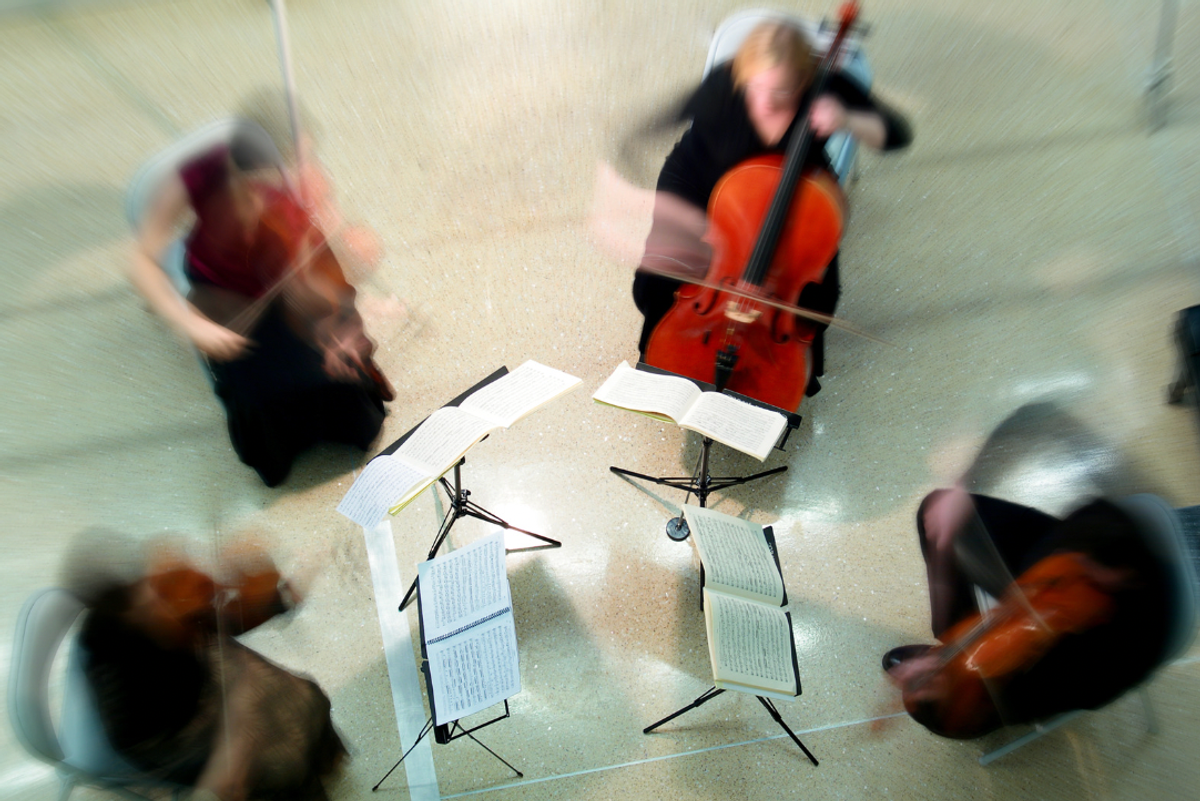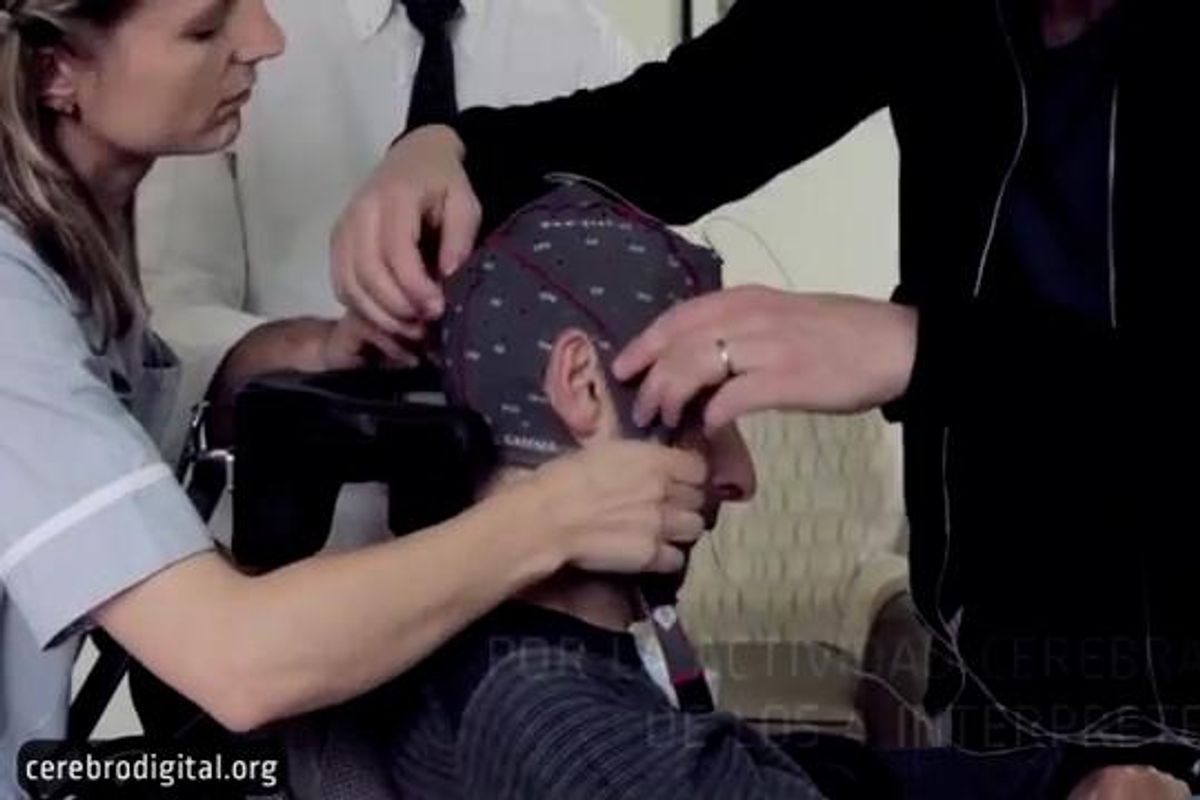Some love stories are so out of the ordinary that they are worth sharing with the world. And few love stories are as extraordinary as the one between a man and the sweet creature that hatched from a mysterious egg he found and incubated.
The true tale of Riyadh and Spike's starts like the opening to a children's book: "One day, a man was walking along and spotted a lone egg where an egg should not have been…" And between that beginning and the story's mostly sweet ending is a beautiful journey of curiosity, care, and connection that captivated people all over the world.
Irish author, broadcaster, and activist Riyadh Khalaf was out walking in Devon, England, when he came upon an egg.
"We just found what we think is a duck egg," Riyadh says in a video showing the milky white egg sitting in a pile of dirt. "Just sitting here on its own. No nest. No other eggs."
 What do you do when you find an egg where it doesn't belong? Photo credit: Canva
What do you do when you find an egg where it doesn't belong? Photo credit: Canva
Thinking there was no way it was going to survive on its own, Riyadh put the egg in a paper cup cushioned with a napkin and took it home to London, which entailed two car rides, a hotel stay, a train ride, a tube ride, and a bus ride. He said he used to breed chickens and pigeons, so he had some experience with birds. Knowing the egg could survive for a while in a dormant state, he ordered an incubator on Amazon. An incubator keeps eggs at a particular temperature and humidity range in order to allow them to continue growing. They mimic the warmth the egg receives from the mother bird sitting on it in the nest. Without that warmth, the fetus inside the egg will die.
With the egg tucked safely inside the warm incubator, the journey to see if the egg was viable began.
Even though it was "just an egg," Riyadh quickly became attached, and once it showed signs of life he took on the role of "duck dad."
Every day, the egg showed a drastic change in development. The incubator was working, and Riyadh's giddy joy at each new discovery—movement, a discernible eye, a beak outline—was palpable. He devoured information on ducks to learn as much as he could about the baby he was (hopefully) about to hatch and care for.
Finally, 28 days later, the shell of the egg began to crack. The baby was coming!
"I could see this very clear outline of the most gorgeous little round bill," Riyadh said—confirmation that it was, indeed, a duck as he had suspected. But duckling hatching is a process, and one they have to do it on their own. Ducklings instinctively know to turn the egg as it hatches so that the umbilical cord detaches, and the whole process can take up to 48 hours. Riyadh watched and monitored until he finally fell asleep, but at 4:51am, 29 hours after the egg had started to hatch, he awakened to the sound of tweets.
"There was just this little wet alien staring back at me," he said. "It was love at first sight."
Riyadh named his rescue duckling Spike. Once Spike was ready to leave the incubator, he moved into "Duckingham Palace," a setup with all of the things he would need to grow into a healthy, self-sufficient duck—including things that contribute to his mental health. (Apparently, ducklings can die from poor mental health, which can happen when they don't have other ducks to interact with—who knew?)
"My son shall not only survive, but he shall thrive!" declared the proud papa.
Riyadh knew it would be impossible for Spike not to imprint on him somewhat, but he didn't want him to see him as his mother. Riyadh set up mirrors so that Spike could see another duckling (even though it was just himself) and used a surrogate stuffed duck to teach him how to do things like eat food with his beak.
He used a duck whistle and hid his face from Spike while feeding him, and he played duck sounds on his computer to accustom Spike to the sounds of his species. He knew that Spike could not stay and live with him forever, so he'd need to learn how to become a normal, everyday duck.
"It's just such a fulfilling process to watch a small being learn," said Riyadh.
As Spike grew, Riyadh took him to the park to get him accustomed to the outdoors and gave him opportunities to swim in a small bath. He learned to forage and do all the things a duck needs to do. Throughout, Riyadh made sure that Spike was getting the proper balanced nutrition he needed as well.
In the wild, most ducks eat plants, small insects, seeds, grains, and fruits. Some species of ducks will even eat small fish. Contrary to popular belief, bread is not good for ducks. It's not inherently harmful, but it's basically candy to them — it has little to none of the nutrients their bodies need. So if they fill up on bread, they may eat less of the foods they really need. Riyadh had a lot to learn!
Check this out:
After 89 days, the day finally came for Spike to leave Riyadh's care and be integrated into a community of his kind "to learn how to properly be a duck."
A rehabilitation center welcomed him in and he joined a flock in an open-air facility where he would be able to choose whether to stay or to leave once he became accustomed to flying. Within a few weeks of being at the rehabilitation center, his signature mallard colors developed, marking his transition from adolescence. Spike has been thriving with his flock, and Riyadh was even able to share video of his first flight.
This is where "And they all lived happily ever after" would be a fitting end to the story, but unfortunately, Spike and his fowl friends are living in trying times. The rehabilitation center was notified by the U.K. government in December of 2024 that the duck flock needed to be kept indoors for the time being to protect them from a bird flu outbreak and keep it from spreading.
Building an entire building for a flock of ducks is not a simple or cheap task, so Riyadh called on his community of "daunties" and "duncles" who had been following Spike's story to help with a fundraiser to build a "Duckingham Palace" for the whole flock. Riyadh's followers quickly raised over £11,000, which made a huge difference for the center's owners to be able to protect Spike and his friends.
All in all, Riyadh and Spike's story is a testament to what can happen when people genuinely care. If Riyadh had left that egg where it was, it may not have made it. If Spike hadn't survived and been moved to the rehab center, the ducks there would be in greater danger of the bird flu due to the costs of building an indoor shelter for them. Despite the ongoing bird flu threat, the story really does have a happy ending.
In an update from June 2025, Riyadh shares that Spike is currently living with Leanne Clarke, who built a rescue shelter called "The Quack Shack" in her home. Riyadh's story and fundraising made much of the construction possible. Spike is starting to remember Riyadh less and less, which is bittersweet, but means that Spike is thriving in his new, safe, domesticated life.
Thanks to Riyadh for sharing Spike's journey with us. (You can follow Riyadh on Instagram here.)
This article originally appeared in January. It has been updated.





 Meatloaf was a staple dinner.
Meatloaf was a staple dinner. Spaghetti is still a classic.
Spaghetti is still a classic. Why were pork chops so popular?
Why were pork chops so popular?
 Pluto and Goofy along with Chip and Dale. Photo by
Pluto and Goofy along with Chip and Dale. Photo by  Dogs aren't normally allowed onboard cruise ships unless they're service dogs, like Forest. Photo by
Dogs aren't normally allowed onboard cruise ships unless they're service dogs, like Forest. Photo by 
 Smiling girl chatting outdoors with a friend.
Smiling girl chatting outdoors with a friend. Smiling warmly in a cozy sweater, feeling relaxed and happy.
Smiling warmly in a cozy sweater, feeling relaxed and happy.
 What do you do when you find an egg where it doesn't belong?
What do you do when you find an egg where it doesn't belong? 
 Sick woman in bed with thermometer, scarf, and hot water bottle on neck.
Sick woman in bed with thermometer, scarf, and hot water bottle on neck.